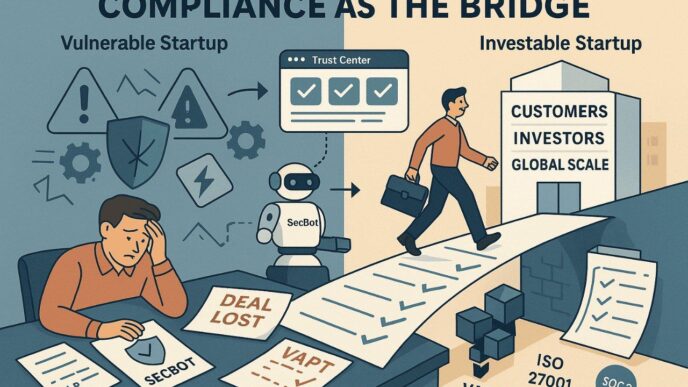Imagine a world where communication across continents happens in the blink of an eye, where the answers to complex questions lie just a tap away, and where societies are more interconnected than ever before. The advancements in technology have not only transformed how we live and work, but they have also redefined the very fabric of modern life. The road to this point has been long, marked by innovation, ingenuity, and profound change.
Technology shapes the world we live in. It influences how we communicate, work, and even think. But how did we get here? In this documentary, we’ll explore the evolution of the technology industry; from its humble beginnings to the groundbreaking innovations of today. We’ll uncover key moments, major players, and the societal shifts that have propelled the tech industry to the global force it is now. Let’s dive in.
The Early Days of Technology
The roots of the technology industry can be traced back to the early 19th century, when great thinkers like Charles Babbage and Ada Lovelace laid the groundwork for what would later become modern computing. Babbage, often dubbed the “father of the computer,” envisioned the Analytical Engine, a mechanical computing machine that, though never completed, held all the basic elements of today’s computers. At the same time, Ada Lovelace, a mathematician and writer, became the first-ever computer programmer. Lovelace’s notes on Babbage’s machine included an algorithm that could be executed by a machine, marking a significant leap in the history of computing.
These early steps set the foundation for what would eventually revolutionize every aspect of human life. Inventions like the telegraph in the 1830s allowed for the first long-distance transmission of information, shrinking the world in ways previously unimaginable. Soon after, the telephone, invented by Alexander Graham Bell in 1876, connected people across vast distances in real-time, forever changing communication.
By the early 20th century, technology had already begun transforming how people interacted, worked, and lived. The invention of radio and the advent of television made global communication and information dissemination more accessible. However, it wasn’t until the mid-20th century, with the invention of the transistor in the 1940s, that the stage was set for the modern computing era. The transistor revolutionized electronic circuits, making them smaller, faster, and more reliable—a pivotal development that fueled future innovations.
Milestones and Breakthroughs
Dramatic advancements in technology were not just incremental but, in many cases, seismic shifts that altered the trajectory of human history. One such moment was the invention of the microprocessor in 1971 by Intel engineers. The microprocessor, a compact integrated circuit that could execute the commands of a computer program, allowed for the mass production of smaller, more powerful computers. It paved the way for the personal computing revolution.
By the late 1970s and early 1980s, companies like Apple, Microsoft, and IBM emerged as leaders in the burgeoning personal computer (PC) market. Apple’s 1984 release of the Macintosh computer, with its graphical user interface and mouse, democratized computing, taking it out of research labs and into homes and offices across the globe. Microsoft, with its Windows operating system, created a platform that would dominate personal and business computing for decades.
But perhaps one of the most monumental moments came in 1989 when Tim Berners-Lee, a British scientist working at CERN, invented the World Wide Web. While the internet had existed in some form since the 1960s, Berners-Lee’s creation allowed for easy access and sharing of information through hyperlinks, a development that would forever change how the world worked. By the mid-1990s, the internet was no longer the domain of universities and government agencies—it was for everyone.
Fast forward to 2007, when Apple’s iPhone redefined the mobile phone. The smartphone was no longer just a tool for making calls or sending text messages—it was a handheld computer capable of accessing the internet, running applications, and enabling constant connectivity. This shift marked the dawn of a new era where technology was not just something we interacted with but something we carried with us everywhere, all the time.
The Impact of Technology on Society
With each breakthrough, the impact on society became more profound. Technology did more than just improve efficiency in industries like manufacturing, finance, and healthcare. It fundamentally changed how people lived. The rise of social media platforms like Facebook, Twitter, and Instagram connected billions of people around the world, creating digital communities that transcended borders. Social interactions, once confined to physical spaces, now happened in digital realms, forever transforming the concept of social relationships.
E-commerce platforms like Amazon and eBay revolutionized how people shopped, shifting consumer behavior away from brick-and-mortar stores to digital marketplaces. These platforms allowed businesses to reach a global audience, further intertwining technology and the economy. Education, too, was transformed as online learning became a staple in schools and universities, and entertainment became more digital with streaming services like Netflix and Spotify.
From banking to booking a doctor’s appointment, every part of daily life began to change. We moved into a digital-first world, making technology more integral to daily life than ever before. Tasks that once took hours, such as writing letters or shopping, could now be done in minutes or even seconds. This convenience, however, also ushered in new challenges as people grappled with constant connectivity, information overload, and the erosion of privacy in the digital age.
The Role of Globalization in the Tech Industry
The growth of the technology industry was not confined to one region. Globalization played a key role in accelerating its development. As technologies spread across borders, countries like Japan, China, India, and South Korea emerged as major players in both production and innovation. In the early days, the United States, particularly Silicon Valley, led the charge, but by the 1980s, Japan was recognized as a tech powerhouse, particularly in consumer electronics.
By the 2000s, China’s rise as a manufacturing and innovation hub significantly shaped the tech industry. Companies like Huawei, Xiaomi, and Lenovo became global competitors, while South Korean firms like Samsung and LG dominated the global market for smartphones, displays, and semiconductors.
Silicon Valley may be the heart of the global tech industry, but technology is truly global. Collaboration across borders fueled innovation, as companies in different parts of the world leveraged their unique strengths. Taiwan’s TSMC, for example, became a leader in semiconductor manufacturing, producing chips used by companies like Apple, Qualcomm, and Nvidia. Similarly, India emerged as a global leader in software development and IT services, thanks to its large pool of highly skilled engineers and developers.
This interconnectedness not only sped up development but also made the competition fierce. Countries and companies began competing for dominance in emerging technologies like 5G, artificial intelligence (AI), and quantum computing. The global nature of the tech industry ensured that innovation wasn’t limited to a few regions but spread across continents.
Key Players and Influential Figures
Throughout its history, the technology industry has been shaped by a number of visionary leaders. Steve Jobs, co-founder of Apple, revolutionized personal computing, digital media, and mobile technology. Known for his attention to design and user experience, Jobs was instrumental in creating iconic products like the Macintosh, iPod, iPhone, and iPad. His influence extended beyond the products themselves—he built an ecosystem that transformed industries.
Bill Gates, co-founder of Microsoft, brought software into the mainstream with the creation of the Windows operating system, which became the standard for personal and business computing for decades. His early vision of a computer on every desk and in every home helped shape the PC era.
Mark Zuckerberg, co-founder of Facebook, changed how people interact online, creating one of the most influential social media platforms in history. Facebook’s algorithms and data-driven approach to advertising have had a profound impact on media, politics, and culture, for better and worse.
Elon Musk, the CEO of Tesla and SpaceX, pushed the boundaries of innovation beyond Earth. With his ambitious vision for electric vehicles, solar power, and space travel, Musk has become one of the most influential figures in the tech industry today, driving advancements in sustainable energy and pushing the limits of space exploration.
These visionaries didn’t just create products—they built ecosystems that continue to influence millions of lives. Their companies didn’t just change industries; they redefined the world’s relationship with technology, from how we communicate to how we consume, work, and play.
The Rise of Silicon Valley
At the center of this technological revolution lies Silicon Valley, a region in Northern California that has become synonymous with innovation and entrepreneurship. What started as a modest area for innovation in the early 20th century—rooted in military research and academic work from institutions like Stanford University—grew into the global hub for technology by the late 20th century.
Silicon Valley nurtured some of the most iconic companies in tech history, from Hewlett-Packard (HP) in the 1930s to Apple, Intel, and Google in the late 20th and early 21st centuries. The region became a magnet for venture capital investment, talent, and ambition, driving the growth of startups that would go on to become tech titans.
Early entrepreneurs like Bill Hewlett and David Packard, along with venture capitalists like Arthur Rock, set the foundation for a culture of risk-taking and innovation. This culture was further fueled by the dot-com boom in the late 1990s, when companies like Amazon and eBay burst onto the scene, transforming the internet into a thriving marketplace.
Today, Silicon Valley is home to some of the world’s most valuable companies, including Apple, Google (now Alphabet), and Facebook (now Meta). It continues to lead the charge in developing cutting-edge technologies like artificial intelligence, autonomous vehicles, and virtual reality. Driven by a unique mix of venture capital, talent, and university collaboration, Silicon Valley has nurtured the tech titans of today.
Controversies and Challenges
However, with great power comes great responsibility—and controversy. Over the years, the tech industry has faced significant challenges, from concerns over privacy and data security to debates over monopolization and fair competition. As tech companies grew larger and more influential, they also became the subject of scrutiny from governments, regulators, and the public.
Privacy concerns have been at the forefront of these debates, particularly with the rise of social media platforms like Facebook and search engines like Google. These companies collect vast amounts of data on their users, leading to fears about how that data is used, shared, and stored. The Cambridge Analytica scandal, in which data from millions of Facebook users was harvested without consent and used for political advertising, highlighted the dangers of unchecked data collection.
Monopolization has also been a significant concern, with companies like Amazon, Google, and Facebook accused of stifling competition and creating “walled gardens” that make it difficult for smaller companies to thrive. Antitrust investigations have been launched against several major tech firms, with lawmakers questioning whether these companies hold too much power over the digital economy.
Additionally, cybersecurity has become a critical concern as hacking, ransomware, and data breaches plague companies and governments alike. Cyberattacks on corporations, hospitals, and even entire cities have underscored the need for robust security measures in an increasingly digital world.
The Role of Governments and Regulation
As the tech industry has grown, governments around the world have stepped in to regulate its influence. In 2018, the European Union enacted the General Data Protection Regulation (GDPR), a landmark privacy law that gave consumers more control over their personal data and imposed strict penalties on companies that mishandled it. The GDPR was seen as a model for future privacy regulations and marked a significant moment in the history of digital privacy rights.
In the United States, lawmakers have also grappled with the question of how to regulate Big Tech. Antitrust cases against companies like Google, Facebook, and Amazon have sparked debates over whether these firms should be broken up or more tightly regulated to prevent monopolistic practices.
Governments have also played a crucial role in funding technological research and innovation. From NASA’s space missions to the U.S. Department of Defense’s development of the ARPANET (the precursor to the internet), government-backed research has often laid the groundwork for major technological breakthroughs. The question moving forward is how governments will balance the need for regulation with the desire to foster innovation.
The Future of Technology
As we look to the future, the possibilities for technological innovation seem limitless. Emerging technologies like artificial intelligence, quantum computing, and biotechnology are poised to drive the next wave of breakthroughs, with far-reaching implications for industries ranging from healthcare to finance to transportation.
AI, in particular, has the potential to transform how we live and work. From self-driving cars to predictive healthcare systems, AI-powered tools are already beginning to reshape industries. Quantum computing, still in its infancy, promises to solve problems that are currently impossible for classical computers to tackle, opening up new possibilities in fields like cryptography, materials science, and drug discovery.
Biotechnology, too, is set to revolutionize industries like medicine and agriculture, with advances in gene editing and synthetic biology offering new solutions to global challenges like climate change and food security.
The convergence of these technologies will likely redefine how we live, work, and interact with the world around us. However, as with all major technological shifts, there will be challenges to address. The ethical implications of AI, for example, will need to be carefully considered, as will the potential for job displacement as automation becomes more prevalent.
The question remains: How will society adapt? And what role will individuals, governments, and companies play in shaping a future dominated by technology?
Today’s Tech News and Tomorrow’s Innovations
The pace of innovation in the tech industry shows no signs of slowing down. Whether it’s breakthroughs in AI, advancements in clean energy technology, or ongoing debates over privacy and security, the technology industry continues to evolve at a rapid pace.
As we move forward, the news reflects how quickly these changes are happening. Startups in fields like renewable energy, space exploration, and artificial intelligence are making headlines, while established companies continue to push the boundaries of what’s possible.
The future of the tech industry is being written now, shaped by the trends and innovations of today. From the rise of electric vehicles to the potential of space colonization, the next chapter of the technology story is unfolding before our eyes. And as we move into this exciting new era, one thing is certain: Technology will continue to transform our world in ways we can only imagine.
Conclusion
From mechanical computers to quantum computing, from Silicon Valley to a globally interconnected tech ecosystem, the technology industry has transformed our world in more ways than one. Thank you for joining us on this journey through the past, present, and future of the tech industry.













